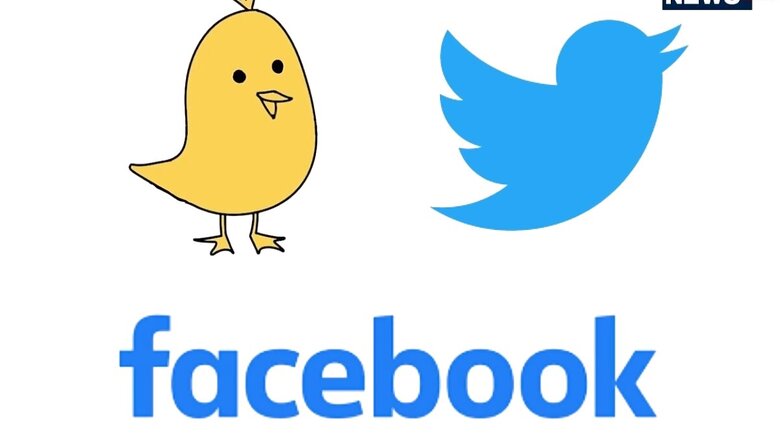Facebook, Twitter, Koo And Other Social Media Platforms Now Must Have Responsive Grievance Redressal

views
Social media firms operating in India will have to implement the new Information Technology (Intermediary Guidelines and Digital Media Ethics Code) Rules 2021 which are applicable from today. These new guidelines were released in February, giving social media platforms including Facebook, Instagram, Twitter and Koo three months to comply. Among the new rules, there are changes in how social media platforms will lose the status of ‘intermediaries’ if they don’t comply with the rules. The focus of these new rules for social media includes the requirement to appoint a resident grievance officer as part of a larger grievance redressal mechanism, active monitoring of content on the platform, monthly compliance reports for Indian users, self-regulation mechanisms and also an oversight mechanism created by the Ministry of Electronics and Information Technology.
All significant social media platforms with more than 50 lakh users are required to have a larger grievance redressal mechanism which will include a Chief Compliance Officer, a Nodal Contact Person and a Resident Grievance Officer. All social media platforms are required to publish these details on their apps and websites and explain to users the mechanism in place to make a complaint against any content on the platform. These complaints need to be acknowledged within 24 hours of receipt and these complaints need to be actioned upon within a period of 15 days from the date of receipt. “Social media, in its unregulated form, is problematic, and partly the big giants have to take responsibility as they manage it,” says Anubhav Raj Shekhar, Faculty Associate, School of Law, BML Munjal University. This elaborate grievance redressal system is required to be in place to ensure that any flags or complaints raised against content posted on any social media platforms including Facebook and Twitter, is taken up for corrective action or clarification without any delay.
The exception to this rule is what the guidelines describe as “any content which is prima facie in the nature of any material which exposes the private area of such individual, shows such individual in full or partial nudity or shows or depicts such individual in any sexual act or conduct, or is in the nature of impersonation in an electronic form, including artificially morphed images of such individual,” shall need to be removed or disabled access within 24 hours from the receipt of a complaint via the redressal mechanism. The social media and digital media platforms will also require immediate redressal for any government notices or court orders. The new IT Rules require much quicker responses to content complaints that are raised, something that hasn’t always happened till now.
Indian social media platform Koo already has a grievance redressal system in place, including a Resident Grievance Officer and a Chief Compliance Officer as part of the setup. “Grievances by an individual relating to exposure of their private areas, full or partial nudity or depicting such individual in any sexual act or conduct; or impersonation in an electronic form, including artificially morphed images will be acted upon within 24 hours,” says Koo, in its updated Statement of Compliance. Facebook has also confirmed that they will comply with the new guidelines. “We aim to comply with the provisions of the IT [Information Technology] rules and continue to discuss a few of the issues which need more engagement with the government. Pursuant to the IT Rules, we are working to implement operational processes and improve efficiencies,” says a Facebook spokesperson, in a statement shared with the media.
At the time of writing this, Twitter’s published details for the grievance officer contact information for users in India, indicate them as being based out of San Francisco in the US. The new Information Technology (Intermediary Guidelines and Digital Media Ethics Code) Rules 2021 clearly state that “For the purposes of this clause “Chief Compliance Officer” means a key managerial personnel or such other senior employee of a significant social media intermediary who is resident in India.” In a statement to the AFP earlier, Twitter had said, “We look forward to continued engagement with the government of India to strike a balance between transparency, freedom of expression, and privacy.”
“The time to appoint grievance, nodal and compliance officers at social media intermediaries has arrived. I think the need for some internal regulation at social media intermediaries is self-evident,” says Dr. Nigam Nuggehalli, Dean-School of Law, BMU. The setup will be much on the lines of Facebook Oversight Board which was set up last year by Facebook. The board has since seen delays in starting work, upheld Facebook’s ban on former US President Donald Trump and has since considered cases including racism, hate speech and nudity, on the platform. Yet, challenges remain and self-regulation has its own unique limitations. Earlier this month, Michael McConnell, the co-chairman of the Facebook Oversight Board said that Facebook’s own rules are “not transparent”, “unclear”, “internally inconsistent” and “a shambles”. “Facebook has already paved the way with the constitution of its Oversight Board. But the rules in India go beyond a single content moderation body and have mandated a more complex institutional structure to regulate information flow through intermediaries,” adds Nuggehalli.
Read all the Latest News, Breaking News and Coronavirus News here. Follow us on Facebook, Twitter and Telegram.

















Comments
0 comment